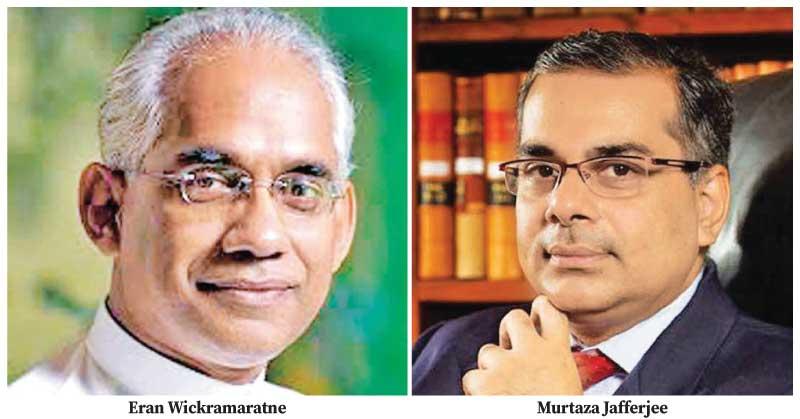
State Owned Enterprises (SOEs) could be more detrimental in developing countries than in developed countries that have more developed institutions and regulators to govern State enterprises, said JB Securities Limited CEO Murtaza Jafferjee in his opening remarks during the session on ‘State Owned Enterprises - the Recipe for Reforms’ at the Sri Lanka Economic Summit last week.
He said Sri Lanka’s debt is about Rs. 10 to 11 trillion which is about 82 to 83 percent of the GDP to which another five to six percent owed by SOEs should be added to make up the total liability of the country.
Corporate governance is the system of rules, practices, and processes by which a firm is directed and controlled. Corporate governance involves balancing the interests of a company’s many stakeholders, such as shareholders, senior management executives, customers, suppliers, financiers, the government and the community.
Emphasising the need for governance, he said it’s how companies are controlled, managed and directed. The questions is most of the SOEs are owned by line ministries, such as the Sri Lanka Ports Authority by the Ministry of Ports and the Ceylon Electricity and the Ceylon Petroleum Corporation by their ministries. This could result in a conflict of interest, as the same line ministry is the policy setter, regulator and owner.
“Whether privatised or not or State owned, there should be a different entity to make state-owned enterprises commercially viable bringing in economic returns to the country while leaving the line ministries to regulate and set policies,” Murtaza said.
He said where SOEs are sheltered from market competition, any resulting SOE inefficiencies can have a large effect on an economy’s productivity. There is also some evidence that development outcomes are adversely affected by poor SOE performance in key sectors. Survey results suggest that poor service delivery of utilities and lack of effective infrastructure provided by SOEs constrain investment and economic growth with a disproportionate effect on the poor.
He said SOEs can more easily gain dominance where markets are small and where the private sector is less able to compete on an uneven playing field. Market size in developing countries tends to be smaller and opportunities for the private sector to participate in markets is more limited (due, for example, to lack of access to skills and capital or the need for minimum economies of scale), and it may be easier for SOEs to gain a dominant position.
However, he noted weaker regulations, monitoring, oversight and the lack of government capacity to regulate markets in developing countries, including the absence of well-developed competition enforcement frameworks, may reduce the level of competition faced by SOEs and fail to deter anti-competitive behaviour.
“Competitive neutrality is a concept that requires all enterprises face the same set of rules and no one entity has undue competitive advantage. It’s based on the assumption that markets which are competitively neutral foster a level playing field which allows resources to flow to efficient producers regardless of whether they are privately owned or government owned,” Murtaza said.
State Minister of Finance Eran Wickramaratne said we need to make up minds as to what is the point in governments owning businesses. Considering the CEB, CPC and SriLankan Airlines the question is why do we need to hang on to them.
“If you have to provide subsidies, provide it through the budget. We need to break monopolies and create competition. There is no strategic reason to have SriLankan Airlines. The restructuring committee came up with strategic reasons. Considering the cost to maintain the airline, the question is whether we need to run the national carrier. Economically, it is a financial liability but nationally an asset,” the State Minister said, adding that professionals and not politicians who should manage businesses.
